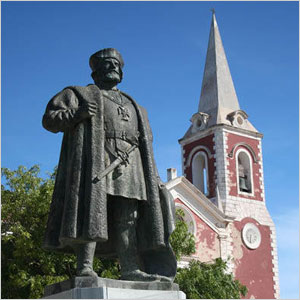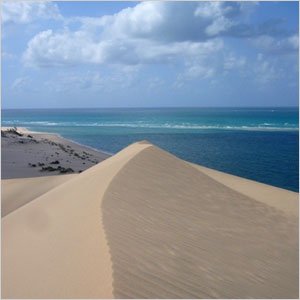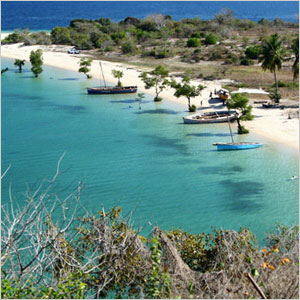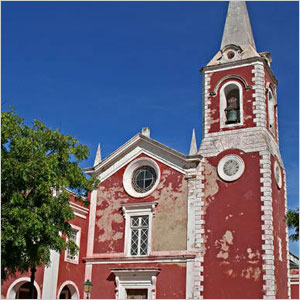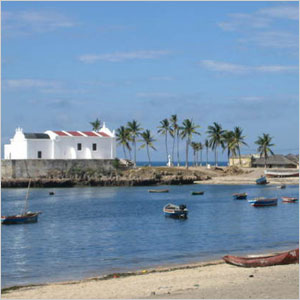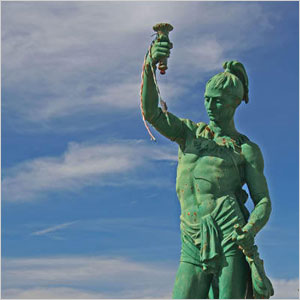 |
||||||||||||||||||
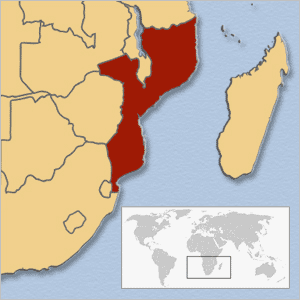
Ministry Foreign Affairs webpage The Republic of Mozambique lies in southeastern Africa bordered by the Indian Ocean to the east, Tanzania to the north, Malawi and Zambia to the northwest, and Zimbabwe and South Africa to the west. The area was colonized by Portugal in 1505, and gained independence in June 1975. After independence, a prolonged civil war hindered economic development until the mid-1990s. Mozambique has seen strong economic growth since the end of the war due largely to reconstruction. Despite the influence of Islamic coastal traders and European colonies, the people of Mozambique have largely retained an indigenous culture based on small-scale agriculture. Mozambique's most well-known art forms are wood sculpture and dance. The Makonde in northern Mozambique are particularly renowned for their wood sculpture. The middle and upper classes continue to be heavily influenced by the Portuguese colonial and linguistic heritage. Mozambique has a tropical climate with two seasons, a wet and dry season. Climatic conditions vary depending on altitude. The coastal capital city of Maputo sees average temperatures between 13-31°C (55-88°F), depending on the time of year. 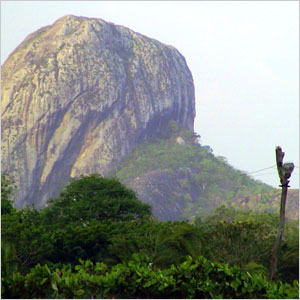 Mount Murresse / Photo by ASM |
Mozambique
LabCap Objectives
Program Highlights
Strengthening Microbiology Services In January 2008, ASM supported a six-week technical assistance visit, which included consultations with the Ministry of Health (MISAU), as well as conceptualizing an EQA program for microbiology within the country. From February 2008 through end of 2010, ASM offered onsite mentoring and training of Mozambican technologists and scientists on basic clinical bacteriology at the Hospital Central de Maputo (HCM). ASM supported multiple short-term intensive clinical microbiology training opportunities to select Mozambican microbiologists in Brazil in 2008. And, in 2009, LabCap implemented national basic microbiology workshops for technical staff nationwide.
Mentoring Programs to Strengthen TB Diagnostics
Strengthening Laboratory Management Toward Accreditation (SLMTA) In addition, to the mentoring outlined above, one specific program (with the ministry of health, Ministerio de Saude - MISAU) introduced ASM LabCap trained SLMTA facilitators to the SLMTA process in the country. As part of this, in February, June and October 2011 (SLMTA workshops 1, 2 and 3), a trained SLMTA facilitator from ASM LabCap supported the facilitation and mentoring of laboratory staff from more than 10 clinical labs in Mozambique. Over 35 technical and quality management laboratory staff attended each workshop. In addition, the LabCap SLMTA co-facilitator mentored local staff as part of their training toward becoming SLMTA facilitators.
Strengthening External Quality Assessment for Microbiology An additional technical assistance program from ASM (in October 2011) supported the Microbiology Reference Laboratory with gram stain EQA panel results assessment and program rollout. Both trainings will be followed up with further technical assistance in early 2012. Additional updates to follow. |
|||||||||||||||||

